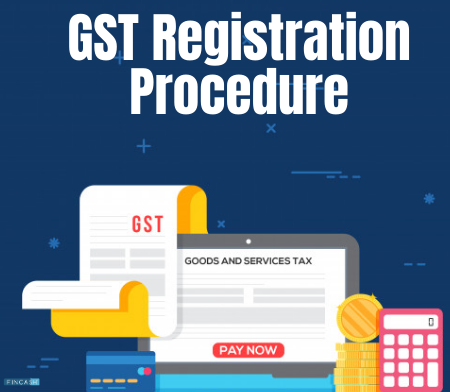Locating Reliable and Efficient Best GST Registration Services in Singapore
From Beginning To End: The Ultimate Roadmap to GST Registration for Companies Seeking Financial Stability
Browsing the intricacies of Product and Provider Tax Obligation (GST) registration is an important action for companies pursuing economic security. From understanding the fundamental principles of GST to conforming with post-registration standards, the process can appear daunting initially glance. Breaking down the roadmap into workable steps can enhance the registration journey for organizations looking to improve their economic standing. Let's explore the essential elements that comprise this supreme roadmap and uncover just how each phase adds to laying a solid structure for economic success.
Understanding GST Basics
Delving into the fundamental principles of Item and Services Tax (GST) is essential for acquiring a comprehensive understanding of its ramifications on businesses and the economy. Input Tax Obligation Credit Score (ITC) is a considerable feature of GST, permitting companies to assert credit history for tax obligations paid on inputs, lowering the general tax obligation burden. Understanding the basics of GST is important for businesses to comply with tax regulations, handle their finances efficiently, and contribute to the nation's economic growth by taking part in a transparent tax system.
Qualification Standards for Enrollment
To sign up for GST, organizations must satisfy particular eligibility requirements established by the government. The primary qualification need is that any type of organization associated with the supply of items or solutions with a yearly accumulation turn over above the threshold limit established by the authorities must register for GST. Since the present policies, the threshold limit for GST registration is an annual accumulation turnover of 40 lakhs for services operating within a state, besides special group states where the limit is 20 lakhs. Furthermore, certain organizations are called for to register for GST irrespective of their turnover, such as interstate distributors, laid-back taxable persons, and organizations accountable to pay tax obligation under the reverse fee system. It is important for businesses to extensively assess their turn over and deal types to establish their GST enrollment commitments precisely. Failure to sign up for GST when eligible can result in fines and lawful consequences, making it crucial for services to stick to the defined eligibility standards.
Files Needed for Enrollment
Having fulfilled the qualification criteria for GST registration, businesses have to now ensure they have the requisite records in position to proceed with the registration process successfully. The records needed for GST enrollment generally include evidence of organization constitution, such as partnership deed, registration certificate, or unification certification for various sorts of companies. Furthermore, organizations require to provide files developing the principal business, such as a rental agreement or electrical energy bill. PAN card of business, in addition to the identification and address proof of promoters/partners/directors, are important for verification objectives. Checking account statements, along with canceled cheques or a copy of the bank passbook, are needed to verify the financial information provided throughout enrollment. Businesses have to have electronic signatures ready for the authorized signature. Ensuring all these papers are organized and easily available will certainly accelerate the GST registration process, allowing businesses to adhere to tax guidelines perfectly.
Step-by-Step Registration Process
Beginning the GST registration process entails a collection of structured steps to make sure a certified and smooth registration for services. The initial step is to check out the GST portal and submit the enrollment kind with exact information of the check out here company entity. Following this, the candidate obtains a Temporary Recommendation Number (TRN) which is made use of to resume the application process if it's not completed in one go.
Next, all required documents according to the checklist given by the GST portal demand to be submitted. These papers usually consist of proof of company identity, address and registration evidence of promoters, monetary statements, and company entity's PAN card.

Post-Registration Conformity Standards

Conclusion
Finally, businesses looking for economic stability must understand the essentials of GST, satisfy eligibility requirements, collect required documents, adhere to the detailed enrollment process, and follow post-registration guidelines - Best GST registration services in Singapore. By adhering to these actions, organizations can guarantee compliance with tax obligation policies and maintain financial security in the long run
In addition, specific businesses are required to register for GST regardless of their turnover, such as interstate distributors, laid-back taxed individuals, and see this services liable to pay tax under the reverse cost device.Having actually met the qualification requirements for GST enrollment, companies should now guarantee they have the requisite documents in location to continue with the enrollment procedure efficiently. The papers required for GST registration usually include evidence of organization constitution, such as collaboration deed, registration certificate, or consolidation certification for different kinds of companies. Additionally, services require to provide papers establishing the major place of service, such as a rental arrangement or electrical power costs.Beginning the GST registration procedure includes a series of structured actions to ensure a certified and seamless enrollment for companies.